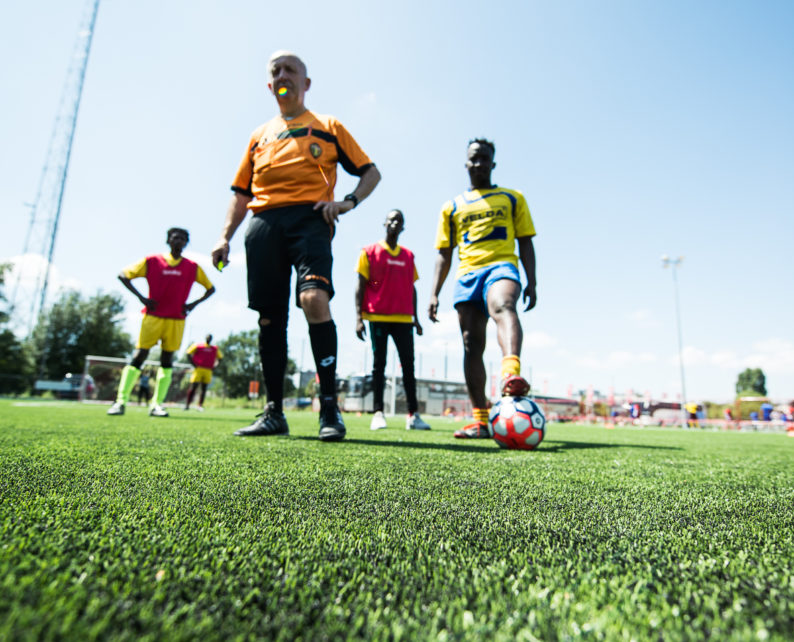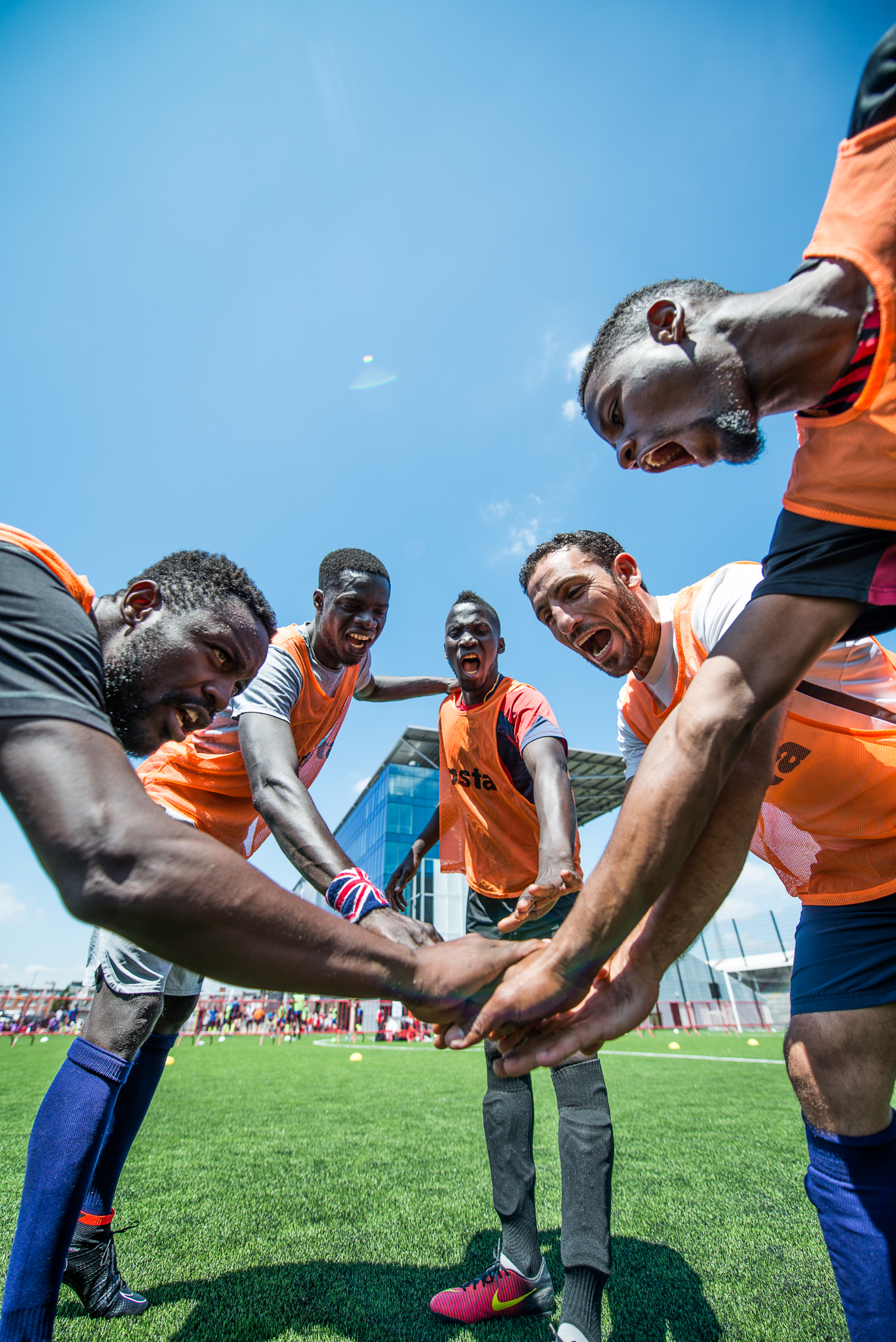Football is a simple game that is accessible to almost everybody and that provides joy and pleasure to participants of all levels. It does not require significant linguistic competences and has a long history of inclusion across all socio-economic layers of society.
On the basis of this rather intuitive experience, both policy-makers and civil society actors, as well as the football community in its largest sense, never tire of pointing out that football has an unequalled potential for facilitating the integration of recently arrived migrants in their new host society. As Aydan Özoğuz, Commissioner for Immigration, Refugees and Integration at the German Chancellory between 2013 and 2018, summed it up,
“Football has the special power of bringing together people across cultural differences and thus strengthen social cohesion. It fosters encounters, creates understanding, and breaks down reciprocal prejudice in a common experience”.[1]
While the enthusiasm about football’s qualities may vary between countries, it becomes clear in such statements that football, rather than an end in itself, is perceived as a means in the process of achieving the objective of social integration. The terms that are most commonly used for this purpose are “vehicle” or “tool”, as in the preface to this report or in the recent Inspire toolkit published by the Fare network:
“By focusing what people have in common, rather than their differences, football can be a powerful vehicle to contribute to the inclusion of refugees in their new countries. The potential of sport as a tool for social inclusion and integration had been widely acknowledged.”[2]





